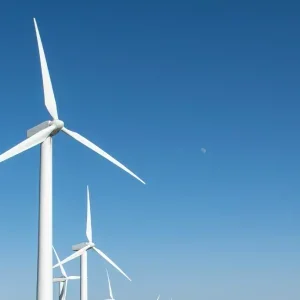The hydro power industry led the US out of the Great Depression of the 1930s and, according to the national-hydropower-association (nha), it has the capabilities to play a key role in economic growth and expansion over 80 years later. Hydro industry development will not only help steer the country towards energy security, but it will also create thousands of new jobs.
The above findings of a recently commissioned NHA study outline how the industry can expand its contribution to energy, environmental and economic goals over the next 15 years. Energy Secretary Stephen Chu believes that such development of the US’ lowest cost energy option is an ‘incredible opportunity’. An opportunity, the NHA believes, for the environment, the US economy and its people.
Growth potential
Early in 2009 NHA commissioned Navigant Consulting to conduct a study examining the hydro power industry’s job creation and capacity growth potential. Information gathered from industry members and government officials demonstrated the industry’s true potential: the creation of 700,000 new jobs and the addition of 60GW of hydro power by 2025. The study examined the industry’s potential under two different scenarios. Both scenarios assume that hydro power continues to provide about 7% of total US electricity, and that electricity demand grows by 2% annually. The scenarios are: Business as usual – where renewables generate 10% of total US generation; Accelerated case – where national policies mandate 25% renewable generation.
Industry supporters welcomed the report but promoted more action in its wake. Pennsylvania Governor Edward Rendell urged policy makers to support the development of hydro in the US. “It’s time to invest in renewable energy resources that generate electricity in this country and that provide jobs for Americans,” he said. “Hydro power presents elected officials across the country with an opportunity to bring thousands of long term, family wage jobs to our states.”
Voith Hydro CEO Mark Garner agrees. “This study confirms what our experience at Voith Hydro has already shown – investments in hydro lead directly to good paying, long lasting American jobs.”
The US hydro industry currently employs over 300,000 people but the creation of additional jobs means that over one million could be working in the industry by 2025. According to James Kautar, international representative for the International Association of Machinists and Aerospace Workers, hydro power is already an important source of good paying, high quality jobs for workers across the country. ‘A national investment in hydro power will help grow American jobs for decades to come,’ he added.
Key areas which will experience new job creation include:
• Environmental sciences – the US hydro industry is already one of the largest natural resource stewards in the country and employs hundreds of people in the management of fish, wildlife, forest land and other ecosystems. Additional jobs will include biologists, foresters and environmental scientists.
• Engineering – The addition of 60GW of hydro power will create new opportunities for those working in electrical, mechanical, marine, civil, hydrological and systems engineering.
• Manufacturing and construction – Extensive support will be required from manufacturers, construction workers and skilled labourers to build new equipment and facilities. Both permanent and recurring jobs will be created in all regions of the US.
• Financial services
• Public policy – Expanding hydro power resources requires public policies that encourage development and investment. Policy analysts, biologists, environmental scientists and regulatory specialists will be key workers involved in this.
• Outreach and education – Educators, public relations specialists, writers, designers and artists will be required to provide communications support for such hydro power expansion.
• Historic preservation – The US hydro industry operates some of the oldest historic facilities in the energy industry. Maintaining the historic integrity of these sites, while ensuring that they operate to the most efficient modern standards, will require historians and preservation experts amongst others.
• Management – Co-ordinating the efforts of over one million employees will require the concerted effort of good management teams. They will oversee a huge array of organisations from small, entrepreneurial companies to larger multinational corporations.
In order for the above expansion to take place, the NHA says that the government must act now to support renewable power. It should implement the following policies:
Adopt a federal renewable energy standard that:
• Recognises hydro power and hydrokinetics as qualified renewable energy resources.
• Backs existing hydro power out of a retailer’s base, acknowledging the benefits of existing hydro power.
• Set 1988 as the in-service data for incremental hydropower and hydro at non-powered dams.
Pass the following tax incentives that:
• Make hydro power production tax credits equal to those of other renewables.
• Provide an investment tax credit for pumped storage and other energy storage options.
• Provide at least US$5B in funding for the clean renewables energy bonds programme.
Enact climate policy that:
• Recognises hydro power’s clean air benefits, including the 225Mt of carbon dioxide it helps avoid each year.
• Provides allowance value to hydro power resources under a cap and trade programme.
• Includes support for incremental hydro power, development at non-powered dams, and ocean, tidal and instream hydrokinetic resources in all climate measures.
Bolster federal research and development programmes into waterpower resources:
• To provide US$500M for the US Department of Energy’s waterpower R&D programme to support new technology advancements, environmental studies, and additional resource assessments for hydro power, pumped storage and hydrokinetic technologies.
‘Hydro power must play a critical role in our national energy, environmental and economic policy, says NHA Executive Director Linda Church Ciocci. ‘The NHA stands ready to work with all policymakers who pursue the development of the US’ critical hydro power resources.’
Related Articles
Spotlight … North America






